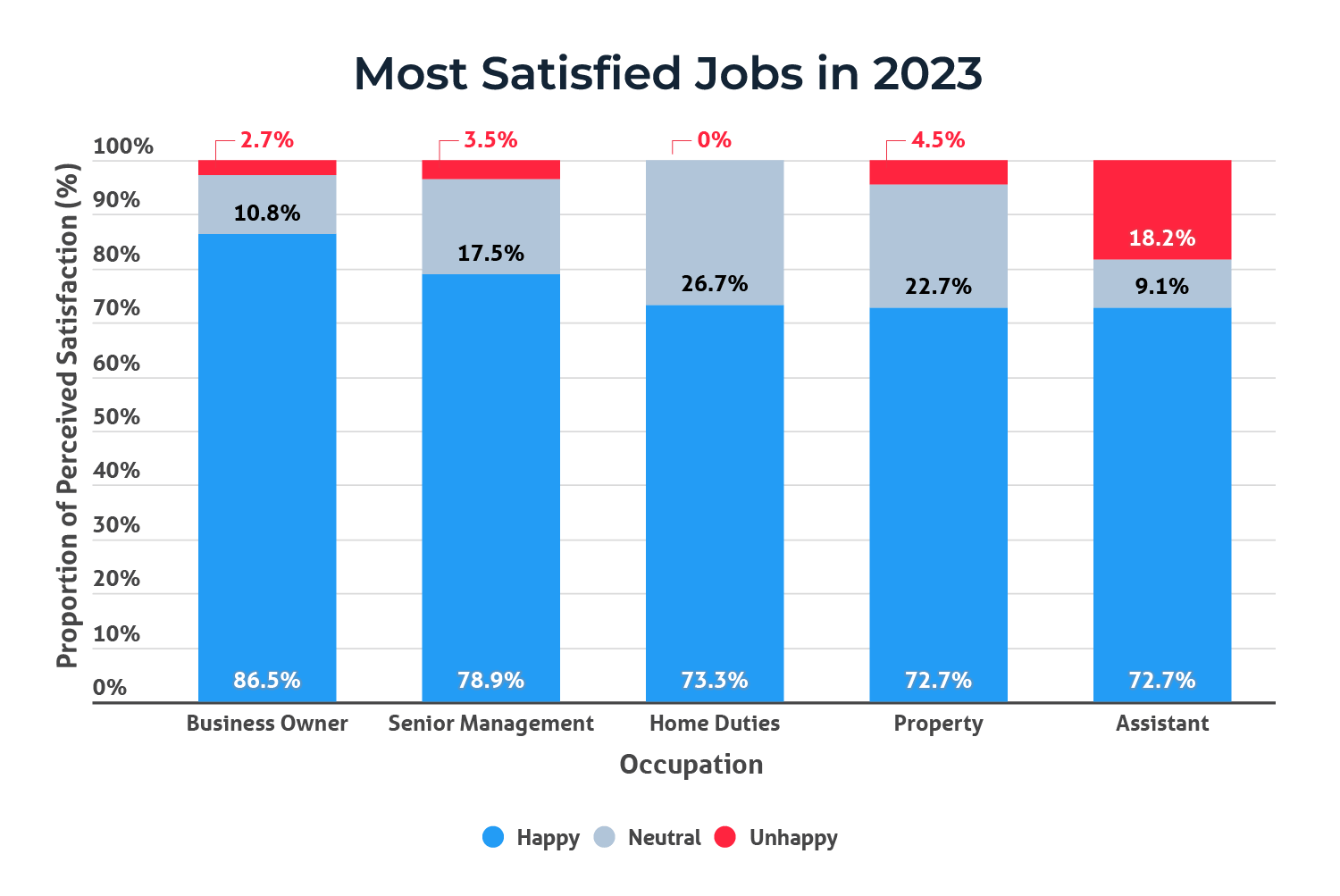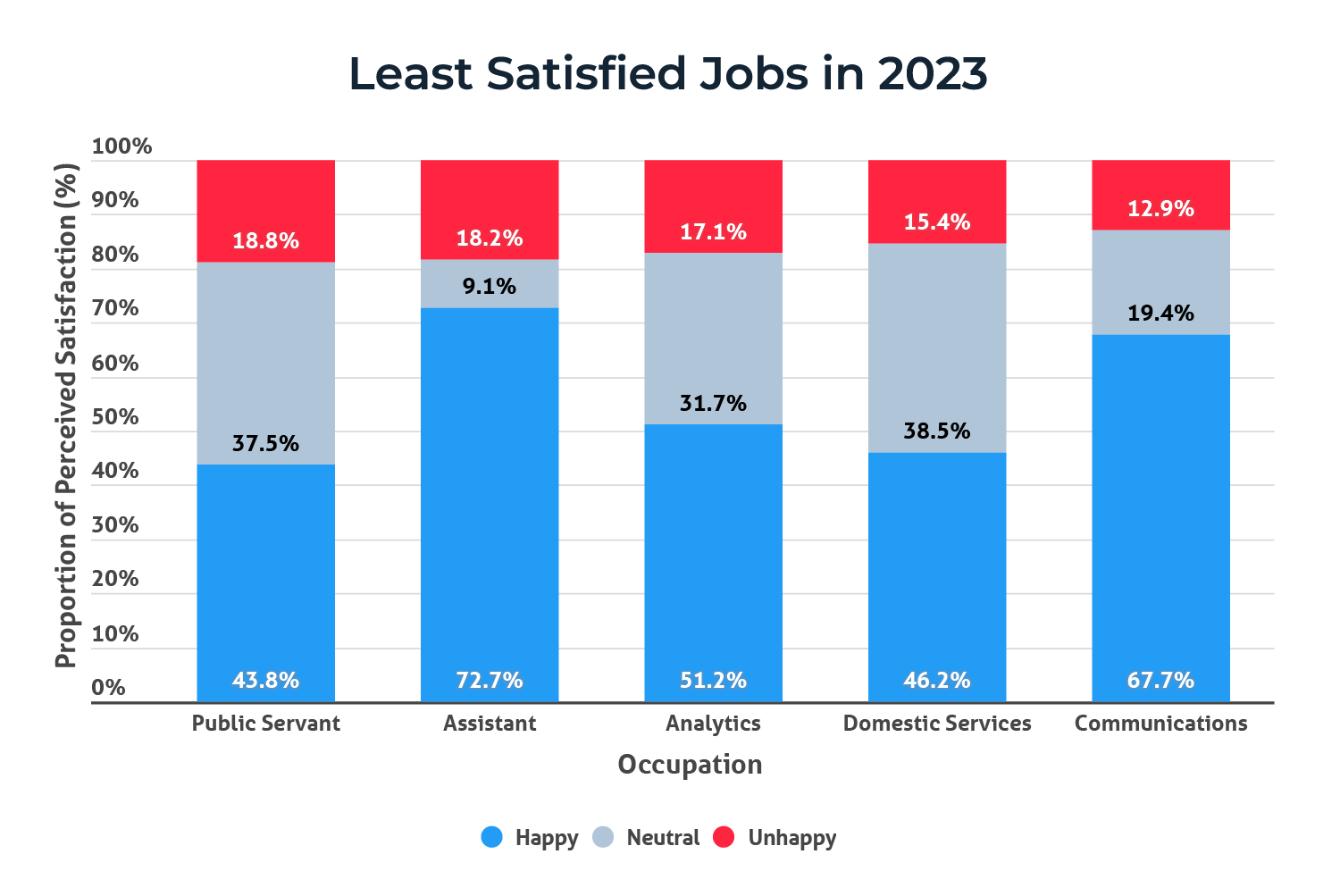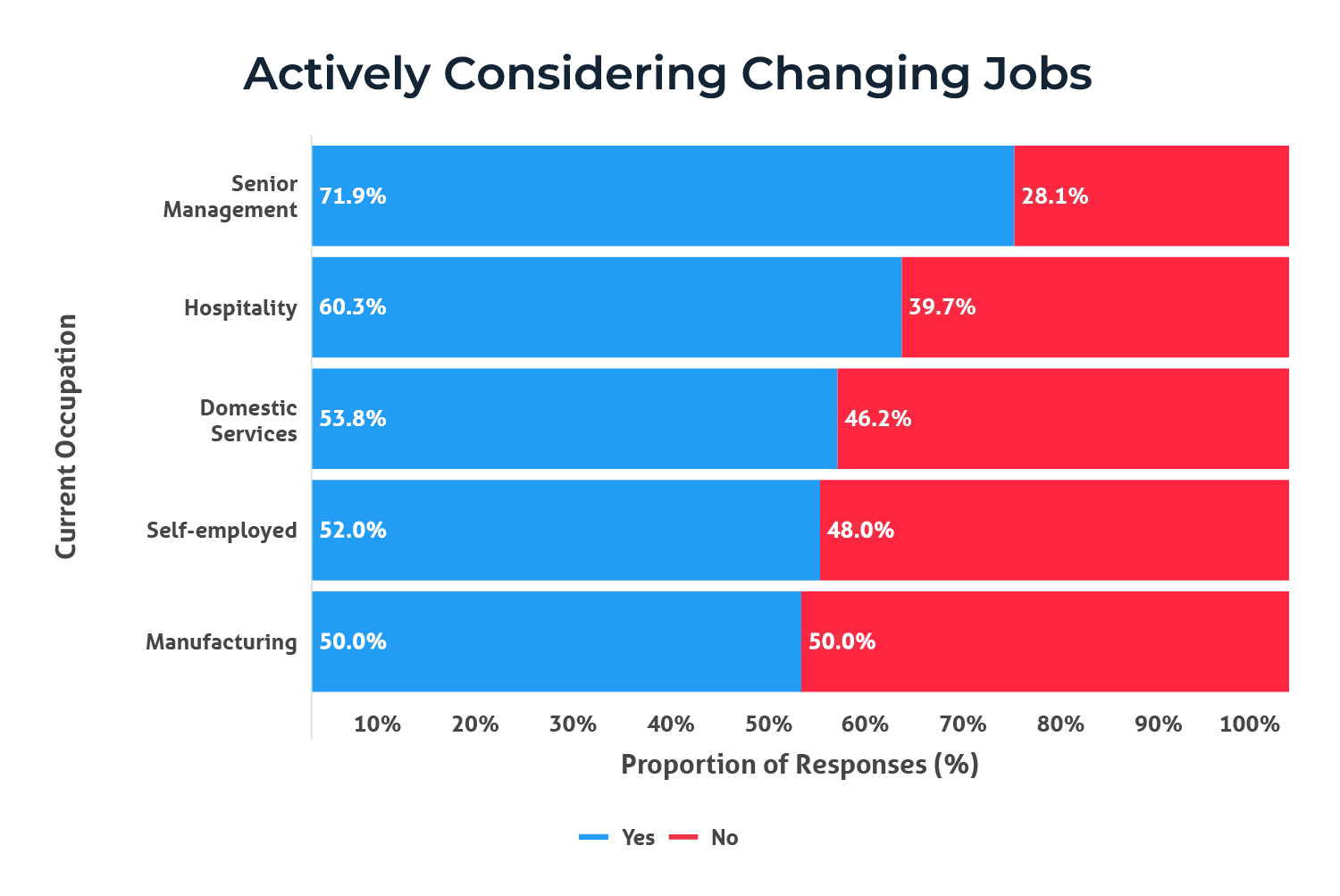The Burrow

The average person will spend about one-third of their lifetime at work (or 90,000 hours),1 but which jobs offer the most satisfaction?
Amid cost-of-living difficulties and declining job vacancies, a growing number of Australians are hesitant to switch jobs, expand their career aspirations and seek better pay – potentially forcing some to stay in unhealthy working environments.2
As business insurance comparison experts, we studied a sample of 3,000 participants across Australia, the United States and Canada to uncover the professions where people are most (or least) happy and the key perceived reasons to job satisfaction.

According to our study sample across three countries, 62.9% of participants are happy at their current job. Business owners were the most satisfied overall, followed by people in senior managerial roles, and stay-at-home carers.
At a national level, business owners (90.9%) again topped the list in Australia, trailed by senior management (81.8%) and accounting (71.4%).
In the USA, senior managers were the happiest (90.9%), followed by healthcare workers (88.9%) and business owners (80.0%).
Meanwhile, Canadians were most satisfied as business owners (90.9%), engineers (82.4%) and nurses (81.3%).

While the majority of participants were satisfied with their current employment, 30.8% were neutral and 6.3% said they were unhappy overall. The manufacturing sector had the highest proportion of participants who felt neutral about their current job (68.9%), while those in public servant, assistant and analytics roles were most unsatisfied.
In particular, a portion of Australians perceived analytics (27.3%), administrative (13.6%) and finance (13.6%) roles as unsatisfactory.
In the USA, most unhappy employees were in customer service (25.0%), admin (22.7%) and hospitality (13.0%).
Meanwhile, Canadians were least satisfied in sales (25.0%), human resources (18.2%) and hospitality (11.8%) work.

Reason | Proportion of Respondents (%) |
Work-life balance | 15.0% |
Positive difference to others | 13.2% |
Well paid | 13.1% |
Respected and appreciated by others | 13.1% |
Great location | 12.9% |
A good work-life balance was judged as the key reason to a happy job, according to our study.
This was trailed closely by the sense of making a positive difference to others, being well paid, and receiving respect and appreciation by others.
Some participants noted a great location (including short commutes and the ability to work from home), good workplace culture, personal development and mentorship opportunities, and excellent leadership also contributed to good job satisfaction.

Only 41.3% of respondents claim they are actively considering changing jobs – potentially to enter into a higher-ranking role or switch industries entirely.
However, while senior managerial roles were perceived as one of the most satisfied professions, a high proportion also want to make the switch to a new job. This was followed by hospitality, domestic services, and self-employed participants.
Manufacturing workers were evenly split in their motivation to stay or leave their current role.
According to a study by the University of Helsinki, dissatisfied employees typically exhibit less safe work behaviours and comply less with management policies, resulting in a higher accident rates.3
Compare the Market’s Executive General Manager of General Insurance Adrian Taylor said it’s therefore important for businesses to have an adequate level of insurance cover.
“It takes a lot to grow and maintain a business, so you don’t want to be left blindsided by the unexpected,” Mr Taylor said.
“Public liability insurance can be one of the most important considerations, as it can potentially help avoid crippling losses and litigation in the event of an accident involving a third party.
“Insurers will offer different policies for various business types at different prices, so it pays to compare.”
Always check the Product Disclosure Statement (PDS) and Target Market Determination (TMD) to understand the inclusions, limits and exclusions before purchasing.
Compare the Market commissioned PureProfile to survey a nationally representative sample of 1,001 Australians, 1,001 Americans, and 1,000 Canadians in November 2023.
The statistics referenced in this article exclude any participant who was unemployed, retired or had any occupation with 10 or less responses overall and in each country.
We also categorised professions into more generalised industry occupations. For example:
All results were rounded to the nearest one decimal place.
Additional sources: